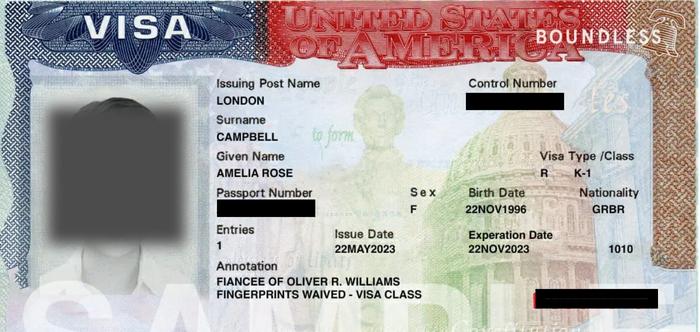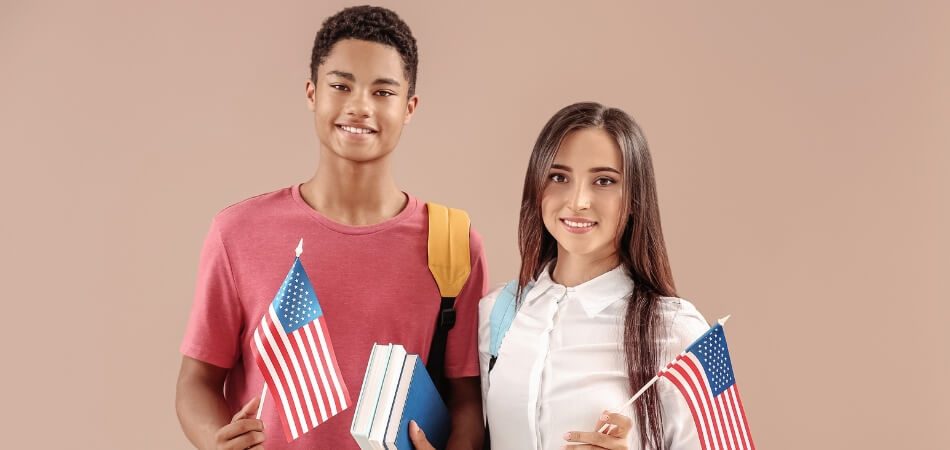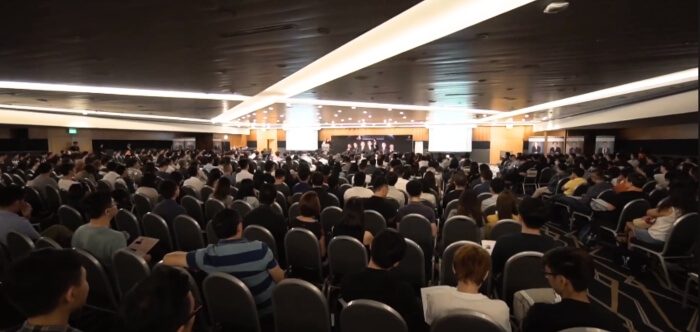The United States has always been a hub for international conferences, attracting delegates from all over the globe. If you’re a Canadian citizen, you might be wondering, do Canada citizens need a visa to attend a conference in USA?
According to the U.S. immigration guidelines, foreign nationals coming for temporary business such as attending conferences require a visitor visa (B-1), unless they qualify for entry under the Visa Waiver Program.
Keep reading this blog to uncover the specific requirements for Canadians and ensure hassle-free entry into the USA for your next business conference. Don’t miss out on crucial insights that could make your travel experience smoother and save you time and effort during the visa application process.
What is the Purpose of a Visa?
Visas serve as an essential instrument in international diplomacy and travel regulations. By granting or denying these documents, countries maintain control over the movement of foreign nationals across their borders. Primarily, they help authorities determine the purpose and duration of a traveler’s stay, ensuring that visitors adhere to specified terms during their time in the country.

On the individual’s side, acquiring a visa is an affirmation of a host nation’s permission to enter and stay for a stipulated period. This documentation offers travelers a clear understanding of their rights and responsibilities during their visit, whether for tourism, business, or joining any upcoming conferences. By adhering to the visa’s conditions, visitors maintain a harmonious relationship with their host country, ensuring future opportunities for travel or collaboration.
Furthermore, from a security perspective, visas play a major role in protecting national interests. The strict vetting process associated with obtaining a visa helps governments identify potential threats and reduce risks. By screening applicants, countries can be more certain that incoming travelers won’t pose any significant risk to national security, public health, or public order.
Entry Requirements For Visiting the USA as a Foreign Visitor
The USA, with its diverse attractions and opportunities, draws millions of visitors annually. Understanding the entry requirements is crucial for a hassle-free visit. Here’s a concise guide to assist foreign visitors in their planning.
Visa Application Process
The primary step for many travelers involves applying for a U.S. visa. After determining the appropriate visa type, complete the DS-160 visa form online. Schedule and attend an interview at the nearest U.S. embassy or consulate.
Visa Waiver Program (VWP)
Certain nations participate in the Visa Waiver Program with the USA. Citizens of these countries can visit for 90 days or less without a visa. However, they must acquire an approved Electronic System for Travel Authorization (ESTA).
Passport Validity
A valid passport is non-negotiable for entry into the USA. Most visitors should ensure their passport is valid for six months beyond their intended stay. Some countries, however, fall under the Six Month Club exemption.
Proof of Financial Support
Travelers must demonstrate financial ability to support their stay. This can be bank statements, pay slips, or a letter from a financial guarantor. Demonstrating solvency ensures travelers won’t become public charges.
Proof of Residence Abroad
To confirm the intention of returning home, proof of residence outside the U.S. is needed. This can be property deeds, rent agreements, or employment contracts. The key is to assure authorities of your intent to depart post-visit.
Health and Vaccination
Some visitors might need specific vaccinations, depending on their origin country. The U.S. may also mandate health screenings for certain travelers. Always check the most recent health requirements before traveling.
Navigating the entry requirements can be challenging but is essential for a smooth journey to the USA. Preparation and adherence to these guidelines ensure a memorable visit to this vast and varied nation.
Do Canadian Citizens Need a Visa to Attend a Conference in USA?
Traveling across international borders often requires careful planning, especially concerning visa requirements. One question frequently asked is: Do Canadian citizens need a visa to attend a conference in USA? Let’s dive into the answer.
The relationship between Canada and the USA has always been unique, promoted by close proximity and mutual interests. When Canadians plan a business trip south of the border, visa concerns naturally arise. For the majority of brief visits, including attending conferences, Canadian citizens usually don’t need a B-1 visa. Instead, they can enter the U.S. for short business trips under the guise of the visa exemption for Canadians.
However, this exemption doesn’t provide carte blanche access. Canadians must still satisfy U.S. Customs and Border Protection officers regarding the purpose and duration of their visit. A clear conference itinerary, a well-formated invitation letter, or any related documents can expedite this process. Ensuring you have the right documents on hand will facilitate entry and minimize potential hiccups.
It’s essential, though, to understand the nuances of visa exemptions. A visa-free entry for a conference doesn’t equate to permission for prolonged work assignments or residence in the USA. Overstaying or misrepresenting the purpose of the visit can lead to complications, including bans from future U.S. visits. Always be transparent and informed about the scope and nature of your travels.
Process of Applying For a Visa as a Canadian Citizen
Managing the visa process can seem daunting, even for close neighbors like Canada and the USA. For Canadian citizens seeking clarity, here’s a concise guide outlining the application steps. Let’s simplify the journey together.
Determine Visa Type
Understanding your travel purpose is the first step. The USA offers various visa types, each with specific criteria. Canadians generally enjoy exemptions for short visits. However, extended stays or specialized purposes may require a visa.
Complete Application Form
The DS-160 form is the primary application document. Accessible online, it demands accurate, comprehensive information from the applicant. Ensure all details match your passport. Always save the confirmation page post-submission.
Pay Application Fee
Each visa category comes with its application fee. Payment methods vary, but online transactions are commonly accepted. Always keep the receipt. Some visas may also require additional issuance fees post-approval.
Schedule an Interview
Most adult applicants must attend an interview at a U.S. embassy or consulate. After DS-160 submission, you can schedule this essential meeting. Remember, interview waiting times can vary. Always check current timelines to plan accordingly.
Compile Necessary Documents
Before your interview, gather all essential documents. This includes your passport, DS-160 confirmation page, application fee receipt, and photo if required. Depending on the visa type, additional documentation might be necessary. It’s vital to follow the embassy’s specific instructions.
Attend the Interview
On the interview day, punctuality is necessary. The consular officer will review your application and ask related questions. Honest, concise answers are best. After this, they’ll decide on your visa application’s approval or denial.
Understanding and following the process meticulously is key. While Canadians often have privileges when visiting the USA, certain trips may demand a more formal visa process. Being well-prepared and informed ensures a smoother experience throughout.
Tips For a Smooth Conference Experience In USA
You will get unparalleled learning and networking opportunities by attending a conference in the USA. However, maximizing this experience requires planning. Here are some tips to ensure a seamless and enriching conference journey.
- Early Registration: Secure your conference spot early. Early bird rates often come with discounts. Plus, it guarantees access to all events.
- Stay Updated: Conferences can have last-minute changes. Check emails and the event’s website frequently. This ensures you don’t miss important updates.
- Local Transportation: Familiarize yourself with local transportation options. Research the best routes to the venue. Consider shuttle services, public transport, or rideshares.
- Networking Plan: Identify key attendees or speakers you’d like to connect with. Draft a few conversation starters beforehand. This can foster meaningful networking opportunities.
- Pack Smart: Ensure you pack all essentials: chargers, notebooks, and business cards. Comfortable attire is essential, especially shoes. Remember, first impressions count!
- Time Zone Adjustments: If crossing time zones, adjust your internal clock. This might mean modifying sleep schedules before traveling. Staying alert during sessions is vital.
- Stay Hydrated and Fed: Conferences can be draining. Regular water intake keeps you hydrated. Pack snacks or know nearby eateries for energy boosts.
- Engage on Social Media: Many conferences have dedicated hashtags. Engage online: share insights or photos. This can amplify your networking reach.
- Stay Nearby: Book accommodation close to the venue. This reduces commute stress. Plus, it’s easier for post-conference networking dinners.
- Take Notes and Reflect: Document key takeaways during sessions. Allocate time daily to review and reflect. This maximizes knowledge retention and application.
Embarking at a conference in the USA can be transformative, both professionally and personally. With the right preparation and strategies, attendees can extract immense value, making their investment of time and resources truly worthwhile.
Bottom Line
Many questions arise when managing the complexities of foreign travel. Do Canadian citizens need a visa to attend a conference in USA? This is a question that sticks out for Canadian professionals considering attending a conference in the United States of America. Fortunately, Canadians can take advantage of certain relaxed laws for quick business travel, even if the USA has strict visa requirements for many.
However, it’s essential to remember that exemptions don’t mean a free pass. A proper understanding of the entry requirements and adequate preparation can go a long way. From the visa process to maximizing the conference experience, every detail matters.
In essence, while the pathway for Canadians is relatively straightforward, the key lies in being informed and ready. This way, you can focus on the conference’s offerings, ensuring a productive and memorable visit.







